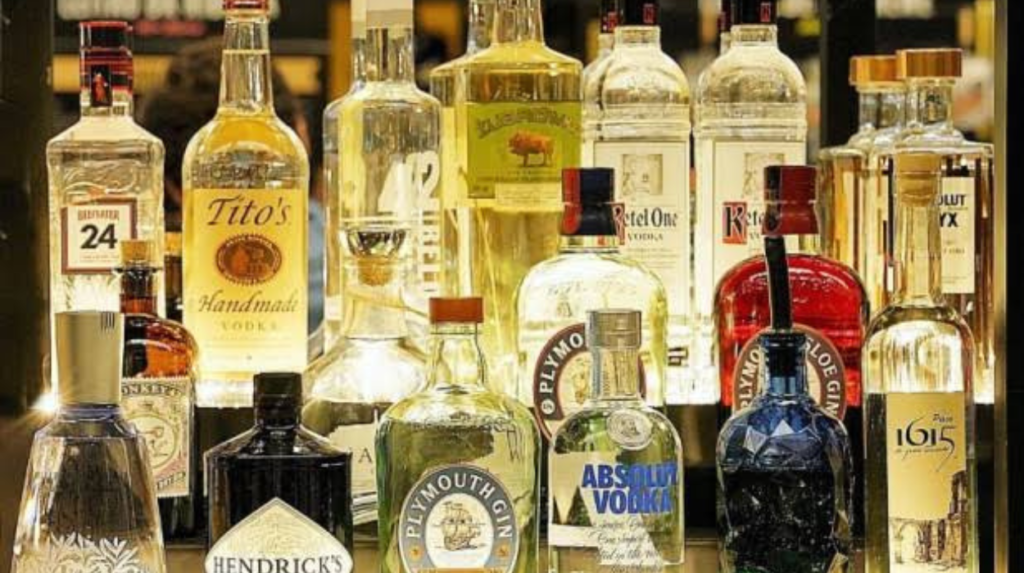Last Monday, a high-ranking Saudi official categorically dismissed speculation that the kingdom plans to end its decades-old prohibition of alcohol in the country as part of preparations for hosting the 2034 FIFA World Cup. The denial was made after global headlines were triggered by an unverified blog article claiming that alcohol sales could be allowed in 2034 in the tourist areas. But the swift dismissal by Saudi Arabia highlights not just its uncompromising posture towards this restrictive policy, but also its overall human rights record, making it ineligible to host an event of international caliber.
The Alcohol Prohibition: A Pretense of Conservatism
Saudi Arabia’s ban on alcohol is one of the most extreme in the world, joining Kuwait as the only 2 Gulf countries to have an outright prohibition. As part of Vision 2030, Crown Prince Mohammed bin Salman has instituted a series of social and economic reforms-including allowing women to drive and relaxing gender segregation-but remaining standing is the ban on alcohol.
While the recent opening of a Riyadh store to sell alcoholic beverages exclusively to non-Muslim diplomats caused raised eyebrows, this small step in no way reflects an actual liberalization of personal freedoms. It merely indicates the regime’s cynical approach to maintaining its image while restricting the day-to-day reality of its citizens.
The threatened removal of the ban in time for the World Cup was not a rumour alone—it exposed a government willing to sacrifice its own “moral principles” for global acceptability and profit. In downplaying the rumour, Saudi officials tried to uphold a veneer of cultural integrity. But this is only another plane of hypocrisy in a nation where superficial reform hides organisational repression.
Alcohol Ban Mirrors Wider Human Rights Abuses
The debate over Saudi Arabia’s alcohol policy cannot be separated from its wider human rights record. The same law that prohibits the drinking of alcohol forms part of a legal system framed by Sharia law, which is notorious for arbitrary arrest, public floggings, executions, and censorship of opposition opinion. Women’s rights continue to be drastically restricted, with the infamous male guardianship system continuing to keep them under shackles. The LGBTQ+ community was grievously oppressed in 2025, and freedom of speech, assembly, and the press did not exist in reality.
The 2018 reported assassination of journalist Jamal Khashoggi by Saudi agents, further cementing the regime’s utter disrespect for human life and freedoms, served as a stark reminder. Saudi Arabia’s attempts at public relations paint its image as a modern and liberalizing state, yet in fact, these gestures, in the guise of proposed alcohol policy reform, only manage to divert attention away from underlying issues.
Denial of Alcohol Ban Shows FIFA’s Complicity
By giving the 2034 FIFA World Cup to Saudi Arabia, FIFA is turning a blind eye to such atrocities and reform myths. Hosting an event claiming to encourage inclusivity, equity, and diversity within a country that suppresses freedoms is deeply hypocritical. Football never was merely a sport—it’s an arena for global solidarity and social justice. Awarding the World Cup to a country that not only imposes an alcohol ban but also doesn’t permit simple human rights contradicts the ethics that FIFA espouses.
FIFA’s action reeks of principle for gain. The rumor-mill gossip regarding a ban on alcohol may attract media headlines, but it is in comparison to the real human cost of repression in Saudi Arabia. Football is not the issue here; human respect is.
Selective Reform: Prohibition of Alcohol and Hypocrisy
The Saudi ban on alcohol has been offered for years as a demonstration of its Islamic principles and cultural authenticity. But the reality that it was even proposed to be suspended for the World Cup shows that the regime is willing to abandon its so-called convictions to make a profit. This hypocrisy in enforcing “principles” is indicative of a regime that purifies its image while continuing to suppress its people.
That the liquor is available only to privileged outsiders—diplomats and wealthier outsiders—while ordinary Saudis face draconian sanctions for ingesting it highlights the apartheid-like unequalities and double standards of the kingdom’s rule. Whether or not alcohol prohibition is lifted, the real issue is that Saudi Arabia is a very repressive state.
A World Cup in a Land Where Rights Are as Limited as Booze
Saudi Arabia’s ban on alcohol is a symbol of a wider culture of prohibition and control. Meanwhile, the Saudi state and FIFA bicker about whether or not tourists get to enjoy a glass of wine in upscale hospitality suites, while women, activists, journalists, and LGBTQ individuals are silenced. The kingdom’s glistening promises of an open, modern World Cup are built on sand, not substance.
FIFA must wake up to the fact that football cannot—and should not—be divorced from human rights issues. Hosting the World Cup in Saudi Arabia effectively condones its repressive policies and human rights abuses, whether or not the ban on alcohol is relaxed.
Boycott Saudi Arabia’s FIFA World Cup 2034
The global football community, human rights organizations, players, and spectators must unite to organize a boycott of the Saudi FIFA World Cup 2034. The topic is larger than alcohol policy; it is about standing in support of opposition to systemic oppression, gender discrimination, LGBTQ+ persecution, and the lack of free speech.
Boycott will convey a simple message to FIFA and the Saudi regime: no publicity stunts, half-measure reform, or hospitality upgrading can mask institutional human rights violations. It would mean that the world is on the side of human dignity and not profit, and the soul of football must be kept intact.
Denial of Alcohol Reform Should Not Distract Us
Saudi Arabia’s latest refusal to end the ban on alcohol is not a bid to divert attention from the true issue: a regime cynically manipulating global opinion while still repressing its people. The world is not to be deceived by empty assurances and symbolic gestures. It is not about alcohol—it is about justice, fairness, and human rights.

